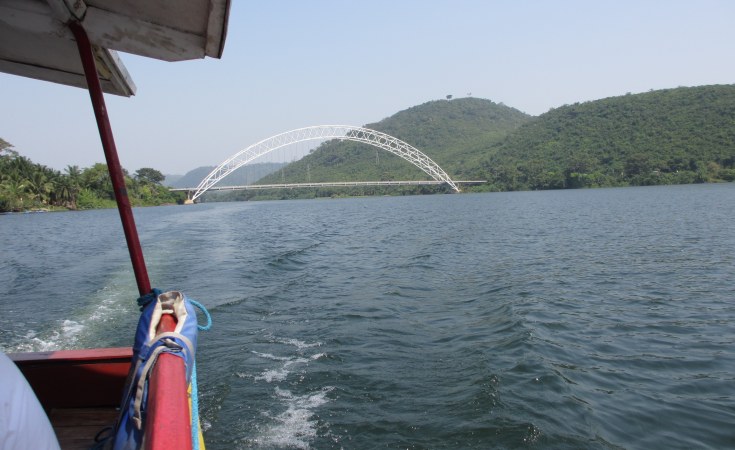Plastic Waste Is an Ever growing problem globally, with the amount of plastic produced and discarded each year continuing to increase. According to a report by the United Nations Environment Program (UNEP), we have over 300 million tons of plastic waste annually, and only a tiny percentage of this is recycled or properly disposed of. As a result, plastic pollution has become a significant environmental issue, affecting our oceans, wildlife, and ecosystems.
However, there is hope. Turning the challenge of plastic waste into a circular economic triumph is possible. A circular economy approach involves designing out waste and pollution, keeping products and materials in use for as long as possible, and regenerating natural systems. This approach to plastic waste management offers a solution to the growing problem of plastic pollution.
Developing a national plastic strategy is a crucial step in achieving a circular economy for plastic waste management. To achieve this, it is essential to understand the scale of the problem and the areas that require intervention. It involves conducting a comprehensive analysis of the amount and types of plastic waste generated, the existing waste management infrastructure, and the social and environmental impacts of plastic pollution. The information gathered can then be used to set targets and indicators for measuring progress toward a circular economy.
Developing a national plastic strategy requires the support of the government and international partners. The first step in creating a national plastic strategy is to assess the scale of the problem, and this involves working with partners and stakeholders to gather data on the amount and types of plastic waste generated and the existing waste management infrastructure. The data can then be used to identify critical areas for intervention and set targets and indicators for measuring progress toward a circular economy.
Setting policy and regulatory frameworks that incentivize sustainable plastic waste management practices is essential. Governments can implement Extended Producer Responsibility (EPR) schemes, where producers are responsible for the entire life cycle of their products, including disposal and recycling. This approach encourages producers to design more accessible recycled products and promotes a shift towards more sustainable production practices. Governments can also introduce taxes or levies on single-use plastics to encourage a shift towards sustainable alternatives and promote a circular economy approach to plastic waste management.
Investing in waste collection and recycling infrastructure is also critical to achieving a circular economy for plastic waste management. This includes improving waste collection systems, establishing efficient sorting and recycling facilities, and developing markets for recycled plastic products. The private sector can play a crucial role by investing in sustainable infrastructure and developing innovative solutions for plastic waste management.
Promoting behavior change towards sustainable plastic waste management practices is also essential. Education and public awareness campaigns can help individuals adopt sustainable consumption habits, such as reducing their single-use plastics and adequately disposing of plastic waste. These campaigns can also encourage individuals to support sustainable businesses and advocate for policy changes that promote a circular economy.
International cooperation is critical in addressing the global challenge of plastic pollution. Countries can learn from each other's experiences and best practices and collaborate to develop innovative solutions to reduce plastic waste. International organizations such as the United Nations Environment Program can provide technical and financial support to countries to develop and implement national plastic strategies.
Developing a national plastic strategy requires the support of all stakeholders, including government, industry, civil society, and consumers. Governments can take the lead in developing policy and regulatory frameworks that incentivize sustainable plastic waste management practices. The private sector can invest in long-term infrastructure and develop innovative plastic waste management solutions. Civil society can advocate for policy changes and assist in developing sustainable businesses. Consumers can develop sustainable consumption habits and demand environmentally friendly products from businesses.
The benefits of a circular economy for plastic waste management are many. It can reduce the amount of plastic waste in our oceans and landfills, conserve natural resources, and reduce greenhouse gas emissions. Additionally, it can create new economic opportunities by developing markets for recycled plastic products and creating jobs in the waste management and recycling industry.
Furthermore, a circular economy approach to plastic waste management can improve public health and reduce plastic pollution's social and environmental impacts. The adverse effects of plastic pollution disproportionately affect marginalized communities, particularly those living near waste disposal sites and in areas with limited access to waste management services. By promoting a circular economy for plastic waste management, we can create more equitable and sustainable systems that benefit everyone.
In conclusion, turning the challenge of plastic waste into a circular economic triumph is possible, but it requires a concerted effort from all stakeholders. Developing a national plastic strategy that sets targets and indicators for measuring progress toward a circular economy is crucial. This strategy should include policies and regulations that incentivize sustainable plastic waste management practices, investment in waste collection and recycling infrastructure, education and awareness campaigns, and international cooperation.
By working together, we can reduce the amount of plastic waste in our oceans and landfills, conserve natural resources, create economic opportunities, and improve public health and environmental sustainability. The time to act is now, and the option for a circular economy for plastic waste management is within our reach.


